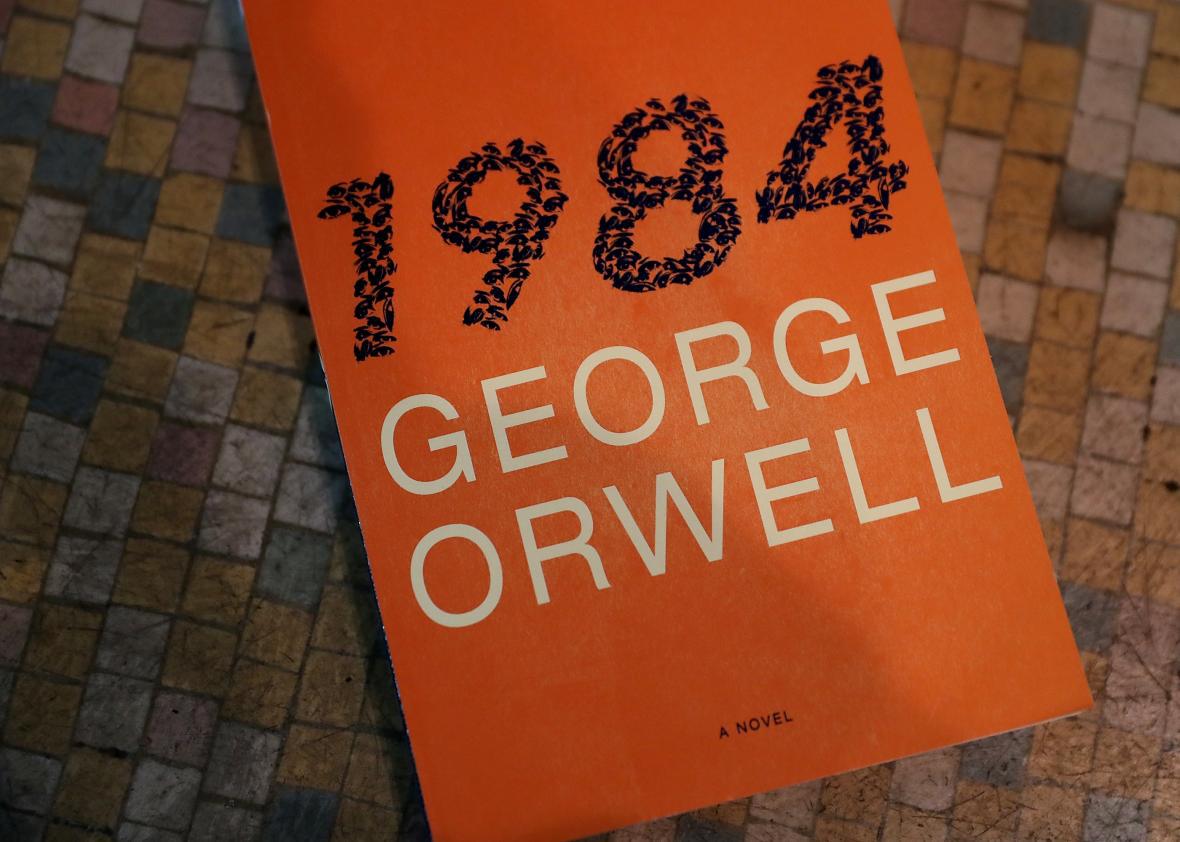Greetings, Future Tensers,
Shortly after President Trump’s inauguration George Orwell’s 1984 shot to the top of Amazon’s best-seller list. The fact that so many people turned toward Orwell’s dystopian vision of the future may seem like cause for worry, but Kevin Bankston, director of New America’s Open Technology Institute, sees it as a sign of hope. He writes, “Great dystopian works like The Handmaid’s Tale and 1984 … can serve as self-defeating prophecies helping us to recognize and prevent the dark worlds they depict.”
But sometimes it seems like elements of the dystopian future have already arrived. This week Justin Lynch, a journalist based in Nairobi, Kenya, wrote about the deadly consequences of fake news in South Sudan, while Lawrence Norden, the deputy director of the Democracy Program at the Brennan Center for Justice, discussed the leaked National Security Agency document that highlights the grave and present risk our election systems face from cyberattacks. Norden stressed, “The revelations in the leaked NSA document make it plain that Russia is likely to continue to escalate its efforts to interfere in our democracy, and this fact may embolden other foreign powers or terrorist groups like ISIS to act against us as well.” Despite this threat, just last week a Georgia judge threw out a request to use paper ballots in an upcoming special election.
Other things we read this week after introducing Alexa and Siri to each other:
- U.S.-Cuban relations: Jorge Alberto Angulo-Valdes, a Cuban marine biologist, makes the case for more cooperation between the U.S. and Cuba to preserve our shared ocean resources.
- Discounted Amazon Prime: Angelica Cabral explores whether Amazon’s discounted Prime membership for customers who receive a certain kind of government assistance is really a good deal for lower-income families.
- Net neutrality survey: A survey conducted by Mozilla and Ipsos found that a majority of Americans support net neutrality. Congress and the FCC should take note.
- The COVFEFE Act: U.S. Rep. Mike Quigley introduced the Communications Over Various Feeds Electronically for Engagement Act on Monday. Jacob Brogan reports the bill would ensure that the National Archives preserve the president’s tweets along with all social media posts as it already does for other materials produced by the executive branch.
- New Facebook features: Ian Prasad Philbrick explains the three new features Facebook launched aimed at better connecting elected officials with the constituents they represent.
Event:
Do you ever wonder what your dog really thinks of you? Bring your dog and join Future Tense at a happy hour conversation Wednesday, June 14 (yes, tonight!), in Washington. We’ll explore what we know about how dogs think, how that informs their behavior, and their roles in our lives. RSVP to attend here. While you’re at it, read up on what we’ve already published on the topic: what humans can learn from dogs with autismlike behaviors, why we need to stop stereotyping dogs based on breed, and why we might not actually want hear what our dogs think of us.
Bark to the future,
Emily Fritcke
for Future Tense
Future Tense is a partnership of Slate, New America, and Arizona State University.
